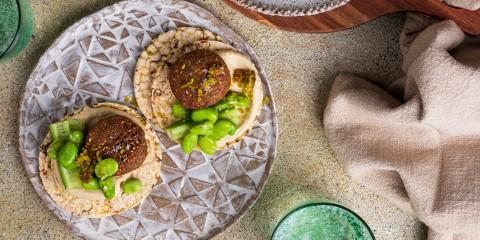Actions You Can Take to Reduce Your Risk of Developing Kidney Stones

Did you know that kidney stones will be a condition affected by approximately ten percent of the population in their lifetime? This is due to many factors, some which are due to lifestyle habits such as poor diet choices, and sedentary lifestyle, as well as chronic diseases such as obesity. These lifestyle habits and certain chronic diseases all can put you at a greater risk of developing kidney stones.
Kidney stones are a gathering of mineral and salt deposits which form in different sizes and shapes your kidneys. These are usually very painful to pass.
Two of the four types of kidney stones are linked to your diet. 80% of kidney stones are caused by calcium oxalate. Calcium oxalate is formed by a diet high in oxalate and not enough calcium or fluids. The uric acid stones cause when your urine is too acidic such as when your diet is too high in protein or due to dehydration.
If you have had a kidney stone, you are at greater risk of developing another kidney stone. The type of stone you have determines the type of diet you should follow.
General Dietary Advice to Help Prevent Kidney Stones:
Keep Your Gut Microbiome Healthy
It may not come to your mind at first that to help prevent kidney stones you need to look after the health of your gut. Your gut microbiome is a powerful conductor of your health in many ways, and this includes performing roles which reduce your risk of developing kidney stones.
The health promoting microbes in your gut may have a role in maintaining normal healthy balance of oxalate in your body. When the health promoting microbes eat their food sources such as prebiotic fiber, they produce many different short chain fatty acids. Short chain fatty acids have different impacts and roles in your body.
One type of short chain fatty acid is called butyrate. Butyrate helps to keep your intestine epithelium healthy. It also affects how much oxalate is absorbed which helps to reduce the risk of kidney stones.
To help promote the type of microbes which create health promoting short chain fatty acids like butyrate it is important to include different varieties of plant-based foods. Each different plant-based food such as whole grains, or whole grain containing foods such as Corn Thins slices, nuts, seeds, vegetables, fruits, beans, and legumes have different prebiotic fibers and other food for the health promoting microbes such as polyphenols. A goal to promote optimal variety and amount of health promoting microbes is to include thirty different plant-based foods a week.
Drink Enough Fluid
Adequate fluids are essential to help prevent kidney stones. Fluids can help block the build-up of kidney stones substances and help ease passage of kidney stones if you develop one. This can be any fluid and the best way to judge is to check the color of your urine. Aim for a pale-yellow color.
Cut Back on Salt
Too much sodium can increase calcium in your urine, and this can increase your risk of kidney stones. Low sodium foods are 120mg/100g on foods.
Mind your Calories
Most people are not within the healthy weight range. By eating enough calories to be a healthy weight you will also be lowering your salt intake over a day.
Up your Potassium
Low potassium can increase your blood pressure and pull calcium out of your bones. Foods and beverages high in potassium include fruits, vegetables, dairy, and legumes.
Specific to Calcium Oxalate Kidney Stones
Include enough Calcium
To reduce your risk of calcium oxalate stones, make sure you are including enough dairy and calcium in your diet from food and beverage sources. Calcium binds with oxalate and is removed in your stool.
Avoid Excess Vitamin C Supplementation
Excess vitamin C supplementation can increase your risk of oxalate stones. Aim for whole foods like fruits and vegetables to achieve your daily needs.
Avoid Excess Calcium Supplementation
Excess calcium supplementation can lead to kidney stone formation.
Specific to Uric Acid Kidney Stones
Organ Meat and Wild Game
Eat these foods no more than once a week. These foods are high in purines which contribute to higher uric acid production. Also, certain seafood such as herring, sardines are also high in protein.
Decrease Overall Meat Consumption
A high protein diet from meat is linked to uric acid stones. Aim for a few days in your week without meat. When you do enjoy meat aim for the serving size to be a ¼ of your plate
Take home message: Your diet and lifestyle habits may help reduce your risk of being one of the 10% of the population who experiences a kidney stone in their lifetime.
References:
- Miller, A.W., Penniston, K.L., Fitzpatrick, K. et al. Mechanisms of the intestinal and urinary microbiome in kidney stone disease. Nat Rev Urol (2022). https://doi.org/10.1038/s41585-022-00647-5